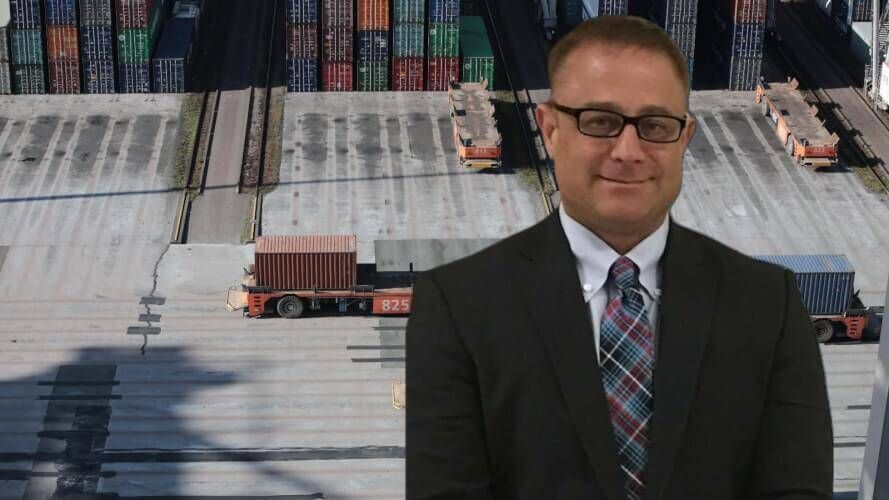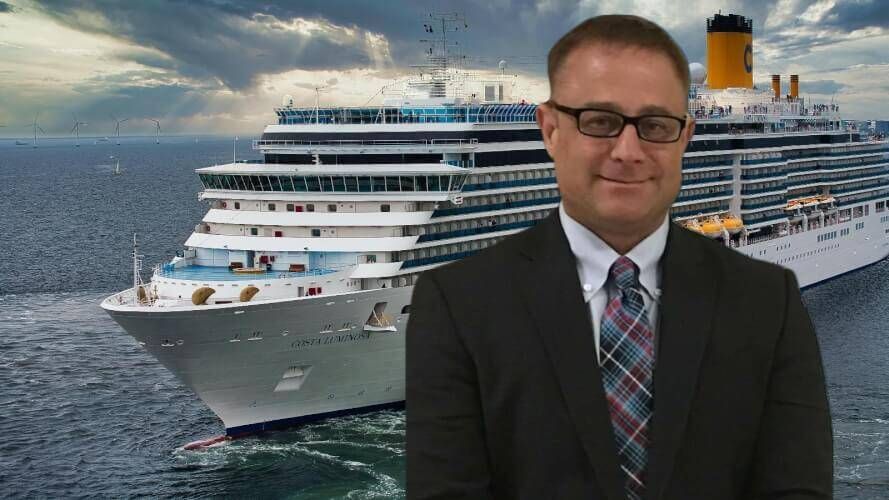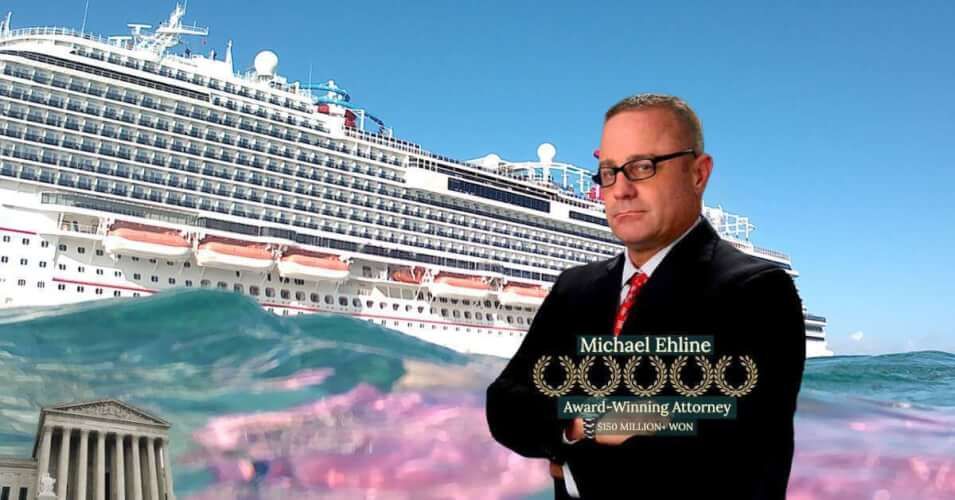Cargo Claims & Liability: Handling Claims and Ensuring a Smooth Process
Just like how a personal injury claim is a legal demand for compensation, companies and businesses can file cargo claims to recover the damages when they receive damaged or missing cargo or become victims of lost cargo.
Although Ehline Law doesn’t handle cargo claims, our Truck accident lawyers have put together a guide to help you with the freight claim process.
What Is a Cargo Claim?
Also referred to as a freight claim, it is a legal process where a shipper pursues compensation against the motor carrier that transports goods for freight damage.
In most cases, the shipper files a cargo claim when the shipment of goods that arrive is damaged or missing. The time you have to pursue a claim depends on the motor carrier, with some requesting affected victims to file within 30 days of delivery for domestic shipments and 14 days for international shipments.
However, under the law, affected individuals or businesses must pursue freight claims within nine months to recover the damages. You may bring many types of claims, such as property damage claims, but cargo claims are the most common.
Cargo Claims Liability: Who Is Liable for Cargo Claims?
In 1906, an amendment to the Interstate Commerce Act of 1877, referred to as the Carmack Amendment, held motor carriers responsible for any damage to the cargo. Under the amendment, brokers are not liable for cargo damages as they’re not dealing with the product, unlike motor carriers.
Motor carriers are the ones loading, unloading, and transporting the cargo, which means they’re the ones handling the logistics of cargo from one destination to the other, making them responsible for any damages incurred during the entire process.
To avoid unnecessary risks, the Bill of Lading (BOL) shows the details of the cargo and its quantity before loading and unloading and is often signed by both parties. The receiving party confirms the goods received by double-checking them with the arrived cargo and the details mentioned in the BOL.
However, sometimes, something might slip through the cracks, and the receiver may receive a BOL that suggests one thing while the physical cargo suggests another. This is typically referred to as a clean BOL.
A clean BOL lets the receiver know there were no shortages in the shipment or other anomalies, releasing the shipper from liability.
It can be challenging to pursue a cargo claim if you’ve received a clean BOL, but that doesn’t mean you can’t hold the motor carrier liable for a damaged shipment even with a clean BOL.
A clean delivery receipt is prima facie evidence that the shipment received was in good order. But, claimants can present evidence that contradicts the BOL.
However, there are five exceptions to cargo claims liability under the Carmack Amendment that release the motor carrier from the burden of cargo liability, including the following.
An Act of God
A cargo company is only liable for the damages when the entire process (loading, unloading, and transportation) is under its control. However, if a natural disaster, such as floods or tornados, affects the cargo, the carrier may use it as a legal defense to avoid cargo claims liability.
An Act of War
Under the Carmack Amendment, the cargo carrier is not liable for the loss if any damage occurs to the cargo due to military forces or war. However, the act of war exemption is not available in the case of organized crimes.
An Act or Default of Shipper
In cases where the shipper is negligent, the cargo carrier can use that against the shipper to avoid liability during the claims process.
For example, if the shipper poorly packages the product, which gets damaged during transportation, the motor carrier will not be responsible for the loss.
Public Authority
In cases where the government is responsible for the damaged cargo (road closures, quarantines, and more), the motor carrier is not liable for the damages.
The Inherent Vice or Nature of the Goods Transported
Some products may suffer damage during transportation due to their nature. Perishable goods such as vegetables, fruits, chocolates, and other similar products have an expiration and require constant attention during transportation.
The motor carrier must follow the instructions mentioned in the signed contract and follow them to avoid damage to the cargo.
However, perishable goods are difficult to handle, and even if the motor carrier follows the instructions, the cargo may not reach the receiver in optimal condition.
Although the inherent vice or nature of goods transported is a challenging legal defense to prove, it is still possible to avoid cargo claims liability in such situations.
When Is Freight Brokerage Liable for Cargo Claims?
In most cargo claims cases, the freight broker is not liable for any damages to the cargo. However, in situations where the freight broker opts to assume the responsibility contractually, you may be able to hold the freight brokerage liable for the damages to the cargo.
Good freight brokers maintain two main types of insurance to compensate their customers in case of loss of cargo, and these include:
- Freight Brokerage Operations Coverage
- Contingent Cargo Insurance
The two main insurance policies can help freight brokers pay cargo claims and maintain a good relationship with their customers.
Ensuring a Smooth Claims Process
Whether it’s cargo claims or freight claims, pursuing a claim against a company or motor carrier is more challenging than you might think.
You must first determine whether the freight broker or the motor carrier is responsible for the damages to your cargo. If the motor carrier is liable, you may struggle to recover compensation if your freight broker is not facilitating your claim.
Although they may not be liable for the damages, a good freight broker will always ensure that they assist their customers in every way possible, including facilitating claims or providing guidance until the motor carrier concludes the cargo claim.
You can also take the necessary steps to protect your cargo claim and ensure a smooth claims process, including the following.
Ensure a Correct Bill of Lading
A shipment’s BOL is essential documentation that can help identify where the damage occurred and can act as evidence in cargo claims.
When the cargo changes hands, it is crucial to record the shipment’s condition, quantity, and other details before signing the document. The consignee should verify the delivery receipt, count the cargo, and assess its conditions before signing off on the BOL.
The more information on the BOL, the better it is, as it can help investigate any damage during transit.
Pursue Claims as Soon as Possible
Although you have nine months to pursue cargo or freight claims, it is crucial that you do not wait that long and immediately fill out the claim form to start the recovery process. Work with the broker or freight forwarders to start the claims process and avoid issues associated with waiting too long to pursue financial compensation.
The claim form requires basic information about the claim, such as shipment, cargo, and payment details. It may also require the following evidence to support your cargo claim:
- Bill of lading
- Shipment invoice
- Invoices
- Other additional supporting documentation
Hold onto Damaged Cargo
Although damaged cargo won’t do any good and take up warehouse space, it plays a critical role in the success of damage claims.
When you file a freight claim, the insurance company will carry out its investigation. Having physical evidence of damaged cargo to show the insurer can ensure a smooth claims process.
File with the Liable Party First
Some businesses file a claim with the broker first, only to realize they may not be liable for the damages. This can lead to a waste of time and eventually affect your cargo claim. It is best to pursue a claim against the motor carrier first to expedite the claims process.
Cooperate
It would help if you cooperated with the insurance adjusters to ensure a smooth claims process, but it is also important to note that insurance companies are almost always looking for ways to reduce or deny claims.
You may want to consider working with an experienced trucking lawyer to guide the legal aspects of a damage claim, handle the insurer and increase your chances of obtaining compensation.
Schedule a Free Consultation with Ehline Law
Like cargo claims, an injured victim can also pursue compensation for the damages incurred following an accident. Ehline Law and our personal injury attorneys have worked with injured victims for over 15 years, helping protect their rights and aggressively fighting for the compensation they deserve.
If you’ve suffered injuries in an accident in California or Texas, contact us at (833) LETS-SUE for a free consultation, as you may be able to seek compensation.


